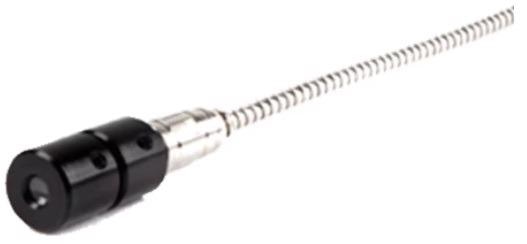‘Collimating’ refers to the process of accurately aligning light or particles in a parallel manner. When used in light measurement applications, collimating ensures that the propagating light exhibits minimal spread.
For example, collimating lenses may be attached to colorimeters, spectrometers or light meters to ensure that any light entering the instrument remains parallel – assuring to cover the relevant measurement area.

Image Credit: Admesy
Collimating Lens Configuration
A collimating lens system is generally comprised of a tube and one or more lenses. By selecting optimal lens and focal distance properties, it is possible to collimate light with high accuracy. The lens can be attached to the measurement device directly or a fiber connection can be used to enable remote sensing.
Collimating Lens Applications
Admesy products with collimating lenses are typically employed in display measurement applications. For example, collimating lenses are extremely useful when measuring displays in terms of color analysis, flicker, white point adjustment, response time and gamma.
The lens’s optics are designed so that it is possible to align and optimize the measurement spot, ensuring stable measurement data and high repeatability. These factors each contribute to the design and manufacture of high-quality displays.
Collimating lenses are also suitable for use in lighting measurement applications, such as the measurement of diffuse surfaces of light sources like OLED panels. It is possible to evaluate a range of parameters depending on the measurement device in use, for example, spectral power distribution, color and flicker.
These lenses are also beneficial in production processes that rely on the analysis of the spectral transmission data of translucent materials. When a collimating lens is attached to a light source and spectrometer, light will only enter the sample under one angle with almost no variation. This helps ensure stable and repeatable results.
Collimating Lenses from Admesy
Admesy offers an extensive portfolio of light sources and sampling accessories designed for measurement devices, including spectrometers, colorimeters and light meters. Various collimating lenses are available to accommodate a range of application requirements.
Lens systems can be connected directly to measurement systems or connected via Admesy’s robust custom optical fiber. The company’s range of lens accessories ensures the utmost flexibility whether a measurement device is being used for research and development or being integrated into production lines where space is at a premium.

This information has been sourced, reviewed and adapted from materials provided by Admesy.
For more information on this source, please visit Admesy.